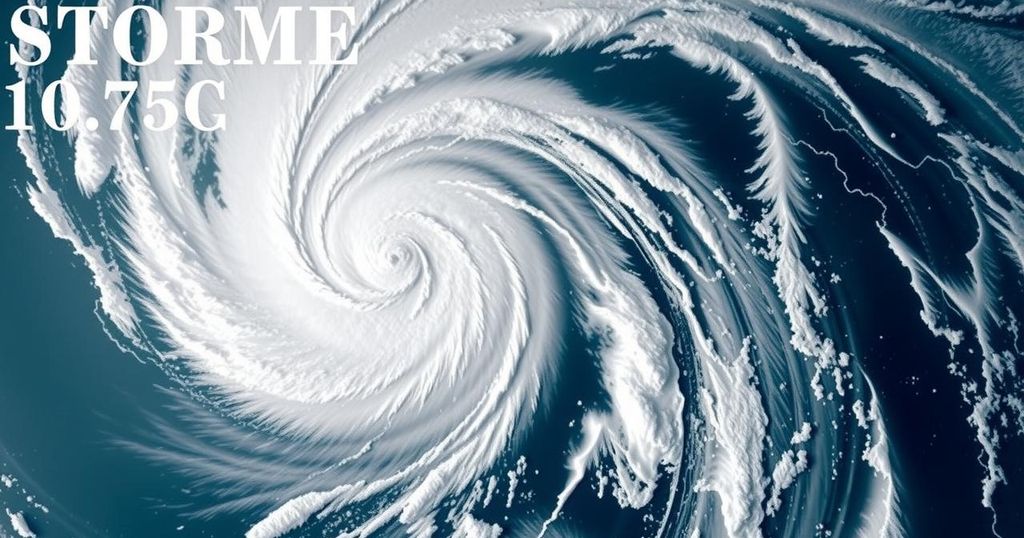World news
AFRICA, BIEUVILLE, CHI, CHIDO, DI, DIEKLEDI, DIKELEDI, EMERGENCY RESPONSE, EUROPE, FLORIANE BEN HASSEN, FRANCE, FRANCOIS -, HURRICANE BERYL, MADAGASCAR, MAYOTTE, MBOUINI, MET, MOZAMBIQUE, MOZAMBIQUE CHANNEL, NATIONAL OFFICE FOR RISK AND DISASTER MANAGEMENT, NATURAL DISASTER, NATURAL DISASTERS, PARIS
Fatima Khan
0 Comments
Tropical Storm Dikeledi Threatens Mozambique Following Devastation in Mayotte and Madagascar
Tropical Storm Dikeledi is heading towards Mozambique after causing fatalities in Madagascar and flooding in Mayotte. As a severe tropical storm, Dikeledi triggered a red alert, intensifying concerns in a region still recovering from Cyclone Chido’s devastation. Authorities are mobilizing resources while forecasters warn of dangerous weather conditions ahead.
On Monday, Tropical Storm Dikeledi headed towards Mozambique after causing significant destruction in Madagascar and triggering flooding in Mayotte. Initially forming as a cyclone on Saturday, Dikeledi claimed the lives of at least three individuals in Madagascar according to the National Office for Risk and Disaster Management. After passing Mayotte by approximately 100 kilometers, the storm weakened into a severe tropical storm, prompting local officials to maintain a red alert due to ongoing hazardous weather conditions. Although no additional fatalities were reported in Mayotte, the region is still grappling with the aftermath of Cyclone Chido, which had recently caused extensive damage and loss of life.
Dikeledi is projected to intensify as it moves over the warm waters of the Mozambique Channel, where it could evolve into a severe tropical cyclone. By early Monday morning, it was recorded 150 kilometers off the coast of Mozambique, with forecasts predicting that the Nampula region of Mozambique would experience degraded conditions characterized by heavy precipitation and destructive winds. Residents of Mayotte expressed anxiety as they continue to deal with the destructiveness inflicted by both Dikeledi and the earlier Cyclone Chido.
Authorities have mobilized over 4,000 personnel for disaster response efforts in Mayotte, establishing accommodation facilities for thousands of residents displaced by recent flooding. With more heavy rains expected and the red alert still in effect banning non-essential travel, the local population remains confined to their homes while the storm continues to pose a threat.
As Dikeledi approaches Mozambique, individuals in Mayotte are advised to exercise extreme caution, particularly those in coastal villages potentially affected by high tides. This season has seen an increased intensity in cyclone activity, influenced by rising sea temperatures as a result of climate change. Without a doubt, areas most vulnerable to storms must prepare for potentially severe weather as the cyclone season progresses.
The region surrounding the Indian Ocean, particularly areas such as Madagascar and Mayotte, is susceptible to cyclones from November to March. The intensity of these storms has been exacerbated due to rising sea surface temperatures, with this year’s temperatures nearing 30 degrees Celsius. Tropical Storm Dikeledi follows the recent devastation from Cyclone Chido, which left Mayotte and Madagascar struggling with tragic casualties and significant infrastructure damage. The recurring threat posed by these storms highlights the need for improved disaster preparedness and resilience in vulnerable coastal communities.
In conclusion, Tropical Storm Dikeledi poses an imminent threat to Mozambique while leaving behind a trail of destruction in Madagascar and Mayotte. The impacts of cyclones are felt deeply by these vulnerable regions, which are still recovering from the more recent Cyclone Chido. As authorities mobilize resources and continue to monitor the storm, the risk of further flooding and damage remains a profound concern. The need for enhanced preparedness measures to mitigate the effects of climate change-induced natural disasters is becoming increasingly evident for all these areas.
Original Source: www.bryantimes.com




Post Comment